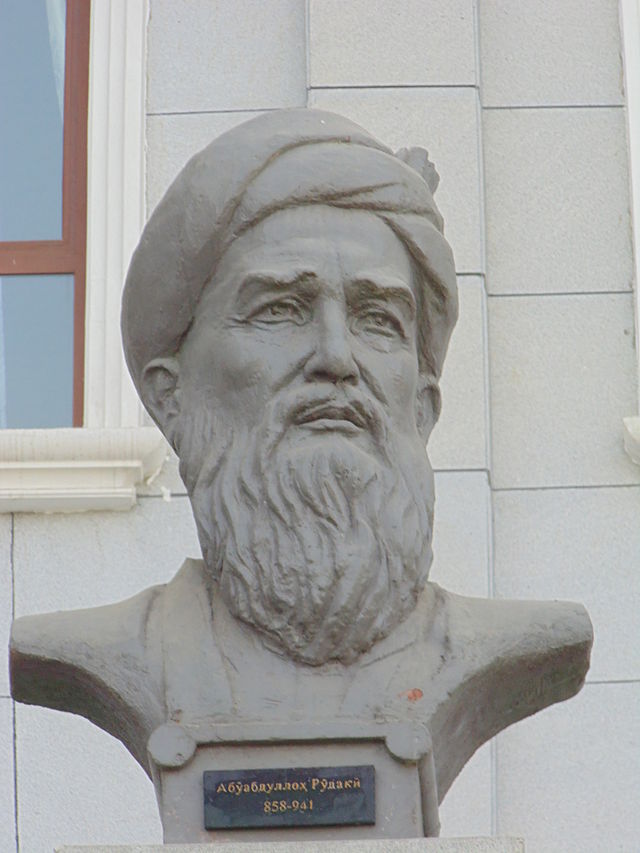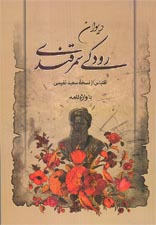Rudaki, a poet and musician (harp), is considered a founder of Persian classical literature. His poetry contains many of the oldest genres of Persian poetry, including the quatrain. He is also said to have been the founder of the divan, or the typical form of the complete collection of a poet's lyrical compositions in a more or less alphabetical order, which is commonly used by Persian poets to this day. His poems are written in a simple style, characterized by optimism and charm and, toward the end of his life, by a touching melancholy.
Unfortunately, only a small percentage of his extensive poetry has survived, including fragments of his translations of the Indian fable Kleeleh va Demneh. While he is noted for being one of the first poets to use what was then the new Persian alphabet, using Arabic letters, his poetry did not contain Koranic references or Arabic words.
Roudaki was a favorite at the court of Samanid Shah Nasr II ibn Ahmad, the ruler of Khorasan and Transoxiana. According to historical records, the Shah was overthrown in 943. Roudaki was attacked by the rebels, tortured and blinded. After this, Roudaki returned to Pandj-Rodak, where he died shortly thereafter.
Soviet forensic archaeologist Mikhail Gerasimov
reconstructed Roudaki's face using bones found in his tomb. The bust is
shown to the right and is atop a marble mausoleum erected in Roudaki's
honor.

